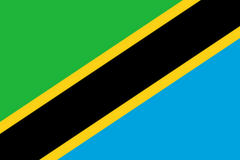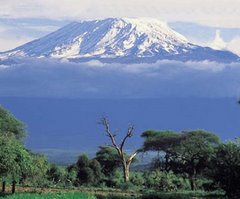What influence and clout did the chairman of the African Union, Tanzanian President Jakaya Mrisho Kikwete, bring to bear on the Kenyan mediation process?
Those were the questions on the lips of most observers as the country celebrated last Thursday’s historic breakthrough in the protracted negotiations.
His intervention came at a time when the negotiations were on the brink of collapse. But Kikwete came into the scene with confidence, declaring that a deal was in the making — and sure enough, it was.
What did he tell President Mwai Kibaki and Raila Odinga?
One theory has is that he came to town with a terse message from US President George W. Bush to the effect that the power-sharing deal must be sealed by all means.
As chairman of the African Union, Kikwete has recently emerged as a key ally and kingpin of the US in the region.
Although this same message had already been passed to Kibaki by US Secretary of State Condoleezza Rice, who had visited Nairobi barely a week earlier, Kikwete’s intervention was bound to meet with a better reception in Nairobi considering that he came to the Kenyan capital wearing two hats — president of a neighbouring fellow member of the East African Community as well as chairman of the African Union.
His visit to Nairobi had added significance in the wake of thinly-veiled threats by the US government, the European Union and even the United Nations of an intervention in the country if the mediation talks failed.
It was US top diplomat Jendayi Frazer who early this month on the sidelines of a summit meeting of the African Union in Ethiopia first issued the threat that the international community would impose a solution on Kenya if the mediation process led by Kofi Annan collapsed.
If any such intervention was indeed being contemplated, the person who would have known its scope and full consequences would have been the chairman of the African Union.
Hence, the theory that Kibaki capitulated in the face of the threat of an AU-led military intervention in the Kenyan crisis.
It appears that the US and other Western powers were worried that without concerted and sustained pressure, the AU would treat the Kenyan crisis with the same lukewarm approach it has adopted on Zimbabwe.
Kikwete’s intervention indicates that the Tanzanian president, who came to power in 2005, is gradually becoming the linkman of the US in the region, having replaced Uganda’s President Yoweri Museveni.
Signs that the US now considers President Kikwete its chief regional ally came in September 2006 when it emerged, to Nairobi’s fury, that Kikwete had discussed Kenya’s “instability” with President Bush during a visit to the White House.
Kikwete’s rise as a regional kingpin has been bolstered by a high-profile anti-graft campaign he recently launched that has seen former powerful members of Tanzania’s ruling party, Chama cha Mapinduzi (CCM), fall one after another — allowing him to redraw power centres and reform the grand old party.
He dissolved the Cabinet after he had accepted the resignation of his prime minister, Edward Lowassa, and two other ministers, Nazir Karamagi and Ibrahim Msabaha, who were both implicated in a major corruption scandal.
The ministers and several other officials were accused of interfering with an energy contract to favour the US-based Richmond Company, contravening laws and rules on procurement.
Observers also saw the reshuffle as a move to dismantle corruption networks within CCM and reclaim party organs from the control of a wealthy clique.
Having been elected the new AU chairman on January 31 this year at the summit in Addis Ababa, Kikwete’s role in resolving the Kenyan political crisis has given the AU a much-needed shot in the arm after its dismal performance in Darfur and Somalia.
As with the defunct Organisation of African Unity, the AU Constitutive Act adopted in July 2000 in Lome, Togo, prohibits interference by any member state in the internal affairs of another.
But Article 4 (h) gives the Union the right to intervene in a member state pursuant to a decision of the assembly in respect of grave circumstances such as war crimes, genocide and other crimes against humanity.
It is instructive that despite accepting the AU-sanctioned mediation, the Kenyan government had earlier maintained that the country was not at war and that an internal solution could be reached, despite the fact that the political crisis in Kenya has had a huge impact on the economies of Southern Sudan, Uganda, eastern Congo, Burundi and Rwanda.
The new deal involves the creation of the post of prime minister, which will put Kenya on the path to fully adopting a parliamentary system, a goal that has eluded the country for the past 15 years.
However, it is Kikwete’s emergence as an influential figure in the region that could spark a major realignment within the Great Lakes region. Until now, Uganda’s President Yoweri Museveni, who is also the Commonwealth chairman, was believed to be the darling of the West.
However, his victory in the disputed 2006 elections and the harassment of opposition figures before and after the polls dented his image as a reformer who had saved Uganda from sliding into total anarchy.
Similarly, his move to change the constitution to do away with the presidential term limit did not go down well in the West.
In the late 1990s, Museveni, together with the late Congolese president Laurent Desire Kabila, Paul Kagame (Rwanda), Meles Zenawi (Ethiopia) and Isaias Aferworki of Eritrea, were seen by the West as a “new breed” of leaders with the vision to move Africa forward.
While President Museveni still remains a strong ally of the West, President Kibaki has had a love-hate relationship with the West since he adopted his “Look East” policy.
Subscribe to:
Post Comments (Atom)



No comments:
Post a Comment